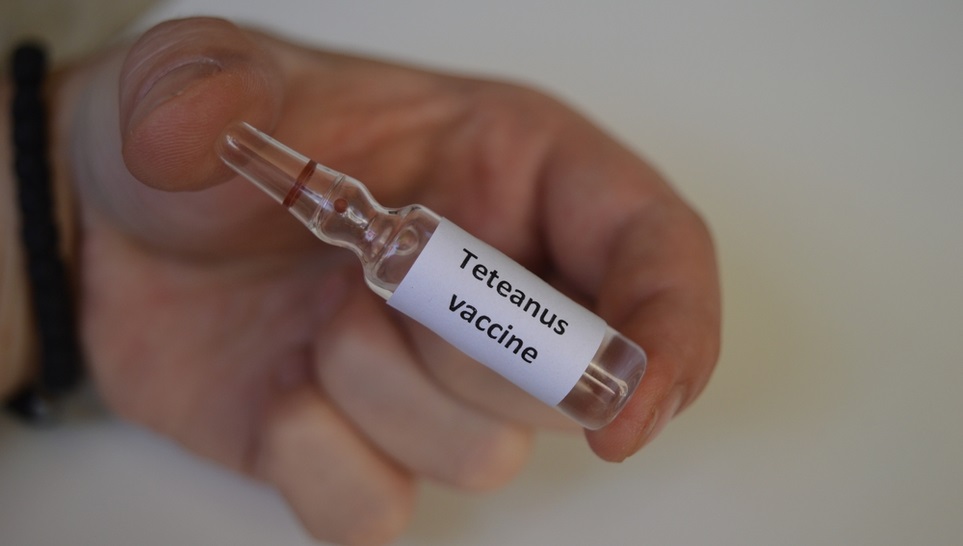
Staying up-to-date on your vaccinations is essential to prevent illness. While many individuals automatically update their influenza vaccine and get protection against other common viruses in the fall, many forget about other necessary vaccines, like tetanus. So how often should you get a tetanus shot?
Vaccine Injury Help Center has all the information you need to keep your tetanus vaccine updated and avoid getting this illness. If you get tetanus and seek representation in your case, our professionals can offer valuable advice on how to proceed. In the meantime, we offer tips regarding tetanus vaccines for children and adults and when to get them.
Understanding Tetanus
Before knowing how often to get a tetanus shot, it’s crucial to understand what tetanus is, its causes, how to identify it, how to prevent it, and the potential treatment options you may undergo. Tetanus shot cases require detailed documentation, and staying informed will help you know when to seek medical treatment.
What Is Tetanus?
Tetanus is an infection from Clostridium tetani bacteria. This bacteria enters the bloodstream and releases toxic substances that cause severe muscle spasms and other life-threatening symptoms. People with tetanus may experience lockjaw or struggle to breathe as the jaw muscles tighten.
Vaccination is instrumental in preventing complications from tetanus such as:
- Broken bones from extreme muscle contractions
- Trouble breathing, potentially causing death
- Pneumonia or other infections
- Uncontrollable vocal cord tightening
- Seizures
- Blood clots
- Issues swallowing
Depending on your age and health, you may survive tetanus, but your survival rate is significantly better if you already know the answer to, “How often should you get a tetanus shot?” 10-20% of people with tetanus die due to the infection, and many of these cases are preventable. Seniors and babies are most at risk for death from tetanus.
What Causes Tetanus?
Clostridium tetani bacteria causes tetanus. This bacteria is prevalent in your surroundings, especially in unsanitary conditions. It enters your bloodstream through cuts, burns, and other open wounds on the skin and releases a substance that causes tetanus symptoms.
You may not know that you have tetanus right away. Most symptoms typically present themselves in the first 14 days of the initial incident, although the first symptoms can begin anywhere between three and 21 days.
Most situations resulting in tetanus include stepping on glass or metal and cutting the skin. Oxygen may kill the toxins from the bacteria, but this may be difficult depending on your injury. Puncture wounds often get tetanus due to their limited oxygen exposure.
Tetanus is not contagious. However, cross-contamination can cause it. Using or getting injured by dirty needles and not cleaning open wounds properly can lead to tetanus. Dead tissue wounds are also susceptible to tetanus.
Tetanus Symptoms

Tetanus symptoms range from mild to severe. The first symptoms to appear include jaw and face muscle tightening and stiffening. Depending on the infection’s progression, you may have excruciating symptoms.
As tetanus worsens, muscle stiffness progresses downwards. Muscle contractions soon appear in the neck, back, abdomen, and legs. The stomach may stay rigid and painful.
Additional symptoms include:
- Sweating
- Increased heart rate and blood pressure
- Fever
How often should you get a tetanus shot if you notice symptoms? If symptoms go without treatment, you risk several complications that could quickly result in death. Between severe breathing infections, blood pressure issues, and severe pain and damage throughout your body, it is evident why seeking medical care as soon as you notice your jaw and face muscles stiffening is vital.
Tetanus Treatments
Tetanus treatments depend on the infection’s progression, the wound’s extent, and whether the person is vaccinated. If your doctor determines you have tetanus, they will immediately clean and treat the injury. They will also apply an antibiotic ointment or prescribe medications to stop the infection.
Doctors may prescribe benzodiazepines or muscle relaxing agents to ease the pain of mild muscle contractions. Extreme cases warrant more advanced treatment.
People immune to tetanus have immunoglobulins in their systems and can donate these proteins to help tetanus patients recover. Patients will receive immunoglobulins and antibiotics to eradicate toxins, while some may need ventilators to aid breathing.
Preventing Tetanus
Properly cleaning and treating wounds is vital in preventing tetanus. Clostridium tetani are most common in dirt, metal, and manure. You can prevent tetanus by thoroughly cleaning open wounds, keeping your surroundings clean, washing your hands, and getting professional medical care immediately after an injury.
While these can be effective practices, proper prevention begins with getting vaccinated.
Getting a Tetanus Shot
How often should you get a tetanus shot? The answer depends on the vaccine you get. Adults are eligible for the Tdap vaccine and the Td vaccine.
What Is the Tdap Vaccine?
The Tdap vaccine is one of the most common tetanus vaccines. It protects against tetanus, diphtheria, and acellular pertussis (whooping cough). Diphtheria poisons the blood and causes difficulty breathing, while pertussis can contribute to seizures and pneumonia and even cause death in babies.
Individuals aged ten and older are eligible for the Tdap vaccine. Because of its combined protection, you can avoid getting multiple shots at your doctor’s visit. You will need a Tdap booster shot every ten years to maintain your immunity levels.
Td Shots
Td shots only protect against tetanus and diphtheria. They are ideal booster shots for those who have already had one Tdap shot. Td vaccinations are safe for children aged seven and older.
Adults who have never had a tetanus shot will need a single Tdap vaccine and subsequent Td shots or Tdap boosters. Td booster shots are necessary every ten years, like Tdap boosters.
Tetanus Vaccine Side Effects

Tetanus vaccines and their variations are safe for children and adults. Any side effects are usually mild and treatable from home. If you are allergic to any vaccine, you should notify your doctor before getting a tetanus shot to prevent the chance of a severe adverse reaction.
Mild side effects of both shots include:
- Swelling and pain around the injection area
- Fever
- Headache
- Lethargy
The Tdap shot may also cause:
- Nausea
- Vomiting
- Chills
- Joint pain
Allergic reactions to tetanus vaccines are rare. Your doctor will ask you to stay in-office to ensure you have no allergic reactions. If you’re at home and you notice trouble breathing, a rash, or severe swelling, contact emergency services immediately for medical attention.
You should not get a tetanus shot if you:
- Have had seizures
- Have Guillain-Barre syndrome
- Have a nervous system disorder
When to Get a Tetanus Shot
How often should you get a tetanus shot to protect yourself and your family? The answer will vary depending on your age, vaccination history, and whether you’ve had exposure to tetanus-causing bacteria. Most doctors recommend lifelong maintenance for maximum protection.
Children
Children will receive the DTaP vaccine if they are younger than seven years. DTaP offers similar protection against diphtheria, tetanus, and pertussis as the TDAP vaccine but is safe for very young children. The ideal schedule for children to receive the DTaP vaccines is at the following ages:
- Two months
- Four months
- Six months
- 15-18 months
- Between four and six years old
After children reach ten years of age, they are eligible for the Tdap vaccine. Every ten years, a booster shot will restore protection against tetanus.
Adults
Adults with no vaccination history or an incomplete vaccination course will begin with a Tdap vaccination. After ten years pass, they will be eligible for a Td booster shot. Some situations warrant additional vaccinations.
If you get cut on a piece of glass, rusty metal, or another sharp object, a tetanus vaccine will protect you. Adults with clean, minor wounds would receive a booster if their injury happened ten or more years after getting their last tetanus vaccine.
Animal scratches or bites and certain types of wounds also warrant attention. If more than five years have passed since your last tetanus shot, you will need a vaccination.
Pregnant Individuals
How often should you get a tetanus shot if you’re pregnant? Tdap shots are crucial at weeks 27 and 36, no matter how long ago your previous shot was. Women who have never gotten tetanus vaccines may need multiple shots.
While it’s rare for newborns and infants to get tetanus unless born in unsanitary conditions, they can get whooping cough very easily. The Tdap vaccine will prevent pertussis in addition to tetanus. Family members coming in close contact with a newborn may benefit from vaccines.
Expecting mothers who get the Td or Tdap shot before their baby is born will get protection from diphtheria and may also protect the baby from tetanus. If you cannot get vaccinated at the recommended points in your pregnancy, getting vaccinated at any point is typically safe.
Contact the Vaccine Injury Help Center for More Assistance

Trust the vaccine lawyers at Vaccine Injury Help Center for up-to-date information and answers to questions like, “How often should you get a tetanus shot?” and other essential topics. We have years of success helping those in vaccine injury cases. Contact us today at 800-810-3457.






